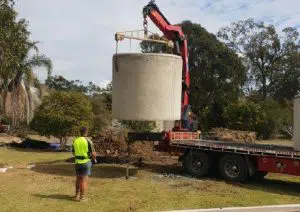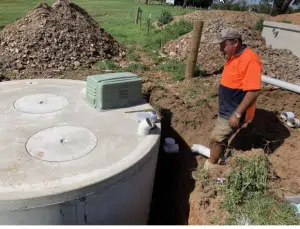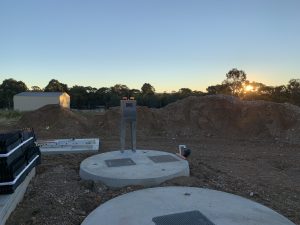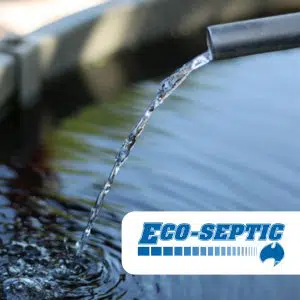How to maintain a septic tank
Septic tanks are part of your on-site wastewater system. It is hidden from sight, odourless, and will last you a long time if well-maintained. They are common in many areas with no access to a municipal sewer system and ones that are not economically viable.
Unsewered developments use septic tanks for sewage treatment and disposal. Poor septic tank system maintenance can pose a substantial health risk to you and your family, as well as an unpleasant financial burden.
Homeowners with septic systems often aren’t aware of proper septic system maintenance and wastewater treatment. You can avoid a potential septic system mishap by following these helpful septic system tips.
Tips for septic system maintenance

Regular pump outs
Sludge and scum can clog your septic system’s drain field if it isn’t pumped regularly enough, compromising its operation. One of the most common causes of septic tank problems is not pumping the system enough.
Do not put fat or grease into the septic system
A septic system aims to break down waste and toilet paper, not fats and greases. Those materials can build up in your system and cause the top layering of your septic system to thicken, causing a problem with wastewater drainage.
Reducing septic water usage
A septic system’s efficiency is primarily determined by the amount of water it receives daily. Because septic tanks have limited capacity, excessive water can harm the system. A surplus of water in septic tanks can interfere with the biological breakdown process that drives its entire function.
Symptoms of an unreliable septic system
Failure to properly handle a malfunctioning septic tank poses a serious health risk to you and your family.
Some of the signs of a failing septic system include:
- A foul smell emanating from the septic tank.
- Grass and/or weeds thriving nearby.
- Soggy soil near septic tanks.
- Household sewage backup. The results are usually evident in household fixtures, such as toilets and kitchen sinks that fail to drain.
Most likely, you will notice these signs of a failing septic tank if you haven’t had it inspected in the last year.
Having issues with your septic tank?

Eco-Septic is a Sydney-based manufacturer specialising in commercial wastewater systems of various shapes and designs. We can provide fast and free quotes relevant to your commercial wastewater needs, all while keeping in mind individual spending capabilities.
Contact us today for a fast quote at 1800 808 135 or visit us at www.ecoseptic.com.au.
We cover all Sydney suburbs as well as the regions of South Coast, Snowy Mountains, Southern Highlands, Riverina, Blue Mountains and Hawkesbury, Laguna, North and Mid North Coast, Bateman’s Bay, Nowra, Mallacoota, Narooma, Balmora, Cobargo, Glenn Ines, Avondale, Glenmore, Mogo, Tarago, Torrumbarry, Albury, Faulconbridge, Maraylya, Sherbrooke, Strathdickie, Little Hartley, Linden, cattail, Bowen Mountain, Murwillumbah, Kyogle, Bryon Bay, Lismore, Evan Heads, Yamba, Grafton and surrounding areas.
Related Posts
- How Much Wastewater Does A Person Produce?
- What To Consider When Looking At A Small Septic Tank For One Toilet
- Eco-Septic Wastewater Treatment Systems Tailored To Your Needs
- What are the Two Types of Wastewater
- Why We Need Home Sewage Treatment Plant Maintenance
- How Does a Domestic Sewage Treatment Plant Work?
- The Benefits Of A Commercial Wastewater Systems
- How Often Do Septic Tanks Need To Be Replaced?





